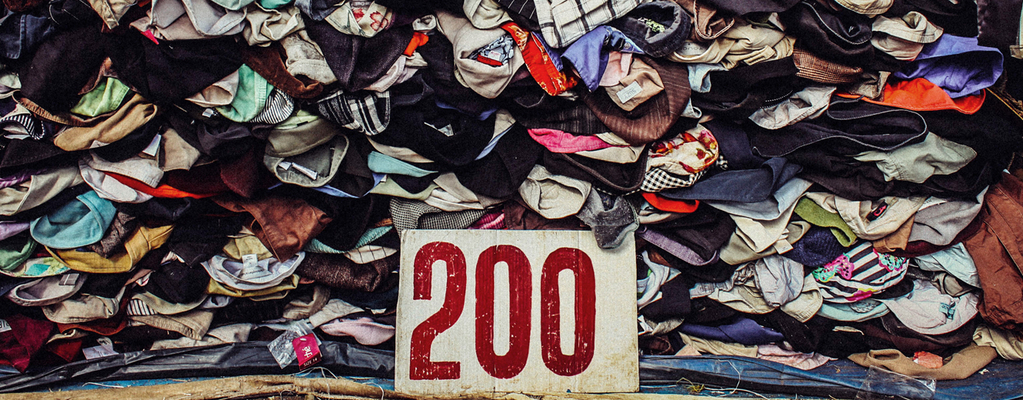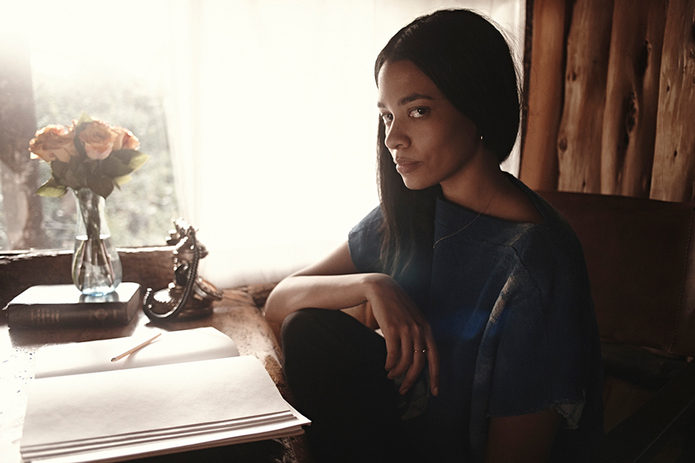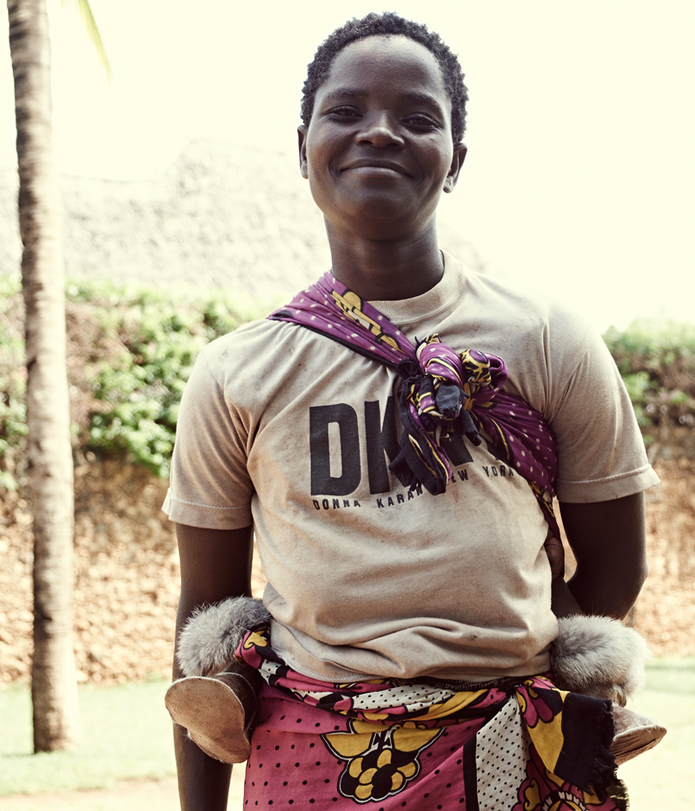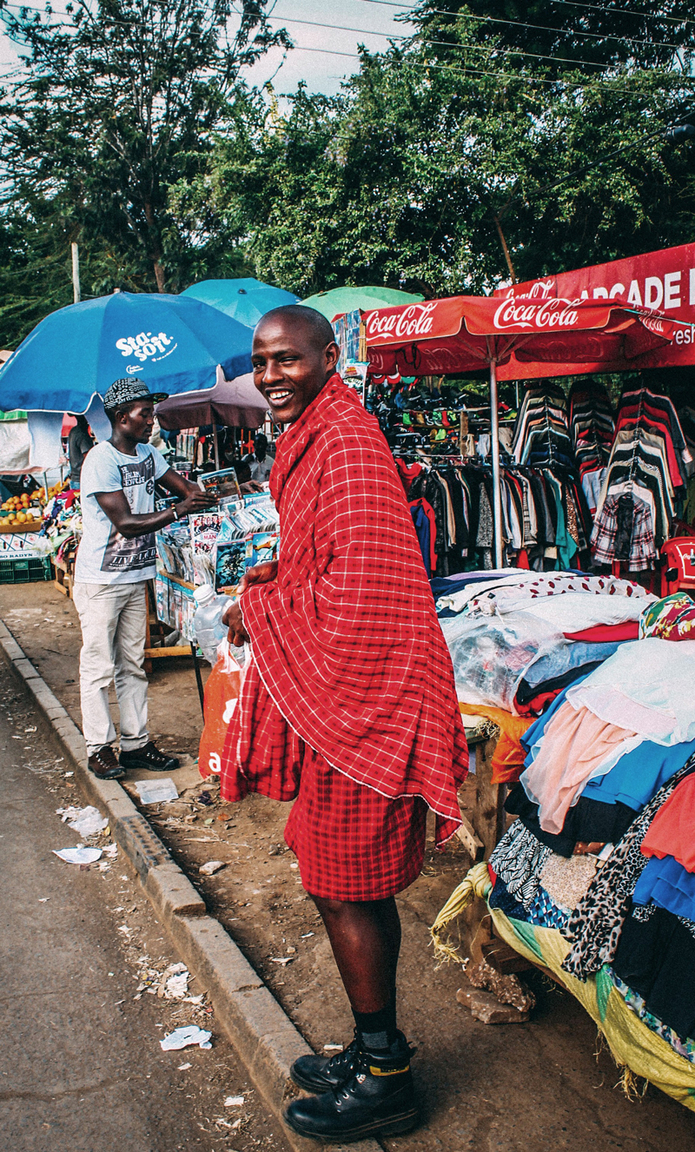


Style.com: Can Your T-Shirt Make A Difference? Brother Vellies’ Aurora James Says Yes!
Aurora James launched her ethically minded shoe company, Brother Vellies, two summers ago in Brooklyn, New York. Made in South Africa, Namibia, and Kenya, the footwear has been featured here on Style.com, in the pages of The New York Times, and on countless fashion blogs, and is sold at Moda Operandi and Nordstrom, in addition to her own e-commerce site. But James isn’t stopping with recycled car-tire sandals. Her latest endeavor has her traveling to Kenya to buy the used and never-worn T-shirts that the U.S. donates to the African country in the name of charity. The T-shirts are largely unwanted in Kenya, and there are stockpiles of them, so James is buying them back and reselling them stateside, where there’s a big market for vintage tees. In turn, she’s donating the money from the project to organizations that support local artisans.
In honor of Style.com’s “Earth to Fashion” week, I sat down with James to discuss the origins of the project, and the other ways that style-minded shoppers can make a difference.
AURORA JAMES: I’m an ’80s child and [remember being] bombarded with these images of “pennies a day will save and feed a child in Africa” and “don’t throw that out, you have to donate to the poor people in Africa.” And I realized that people in America and Canada and [other parts of the world] have the best intentions of helping people, but sometimes we just don’t know the right way to do it. We’ve created these mass piles of extra clothing that for the most part aren’t needed. I read a statistic that said, “there are eight T-shirts for every one person in Africa.” Then you have the Super Bowl—they go into production with thousands upon thousands of shirts for the winning team but they don’t know which team is going to win, so they produce both and donate the losing team’s shirts to Kenya. So there are all these athletic events that do stuff like that or these huge companies that have production runs and just essentially use Kenya and other countries as their garbage [dump] under the guise of help. The result is that it’s killed a lot of their local manufacturing. If you give someone a pair of shoes for free, that person is no longer buying shoes from someone else. So, it really has to be about trade and not aid. We have to be smarter about how we’re choosing to help people.
I was going to Kenya and I was just seeing this overwhelming amount of clothing everywhere. Some of these T-shirts are amazing! I was biking down the street and saw a girl in this awesome Harvard T-shirt, and after seeing all the piles of clothing, I just wanted to bring some of it back. I love vintage stuff, I used to make money by vintage picking, so it’s very natural to me. It’s about educating customers and yourself, me included, in the whole process in a really fun way.
How do you choose a deserving organization to support development in Kenya?
That was actually the hardest part for me, because while I’ve decided to donate this money, it kind of contradicts what I’ve been saying, which is “trade over aid.” That’s why choosing the organization was so important, and the Basecamp Foundation was a really good place to choose this season. They work with all the local women in the community, teaching them skills to create something that’s tangible and that’s going to have value. Not just the beading, but the whole process from getting the leather, choosing the leather, beading it, how to replicate the same pattern, and choosing things that are sellable. They seem like no-brainers, but for someone who’s never had a job before [these skills] are actually really important. Going forward, it may not always be a 501(c)(3) not-for-profit organization; it might be a micro-financing thing, or it might be someone I meet that’s amazing. I have a guy who does all the bone carving [for Brother Vellies’ shoes] and if he has something that breaks down and he really needs it and there’s no other way to do it, then I think that’s an amazing way to help and support. He trains so many people and he’s completely off the grid, and how else are people like that supposed to get support?
What are the most impactful ways you believe the American consumer can positively affect the sustainable community or not hinder it?
I would think supporting companies that have long-term commitments to communities. Companies say, “this season we’re doing this with these people,” and they ramp up new people and they train them for one season, but what happens to them after? So it’s about supporting organizations that have long-term commitments, and when you are traveling make sure that you are looking into ecotourism options. If you’re going somewhere like Kenya in the Maasai Mara, which is government-owned, you could potentially stay in a conservancy like the Mara Naboisho Conservancy, which has a land-share program with the Maasai people, so you know that a large percentage is actually going to stay in the local community. And it’s also about making more informed choices. People email me and ask, “hey, where should I go in Kenya?” and I’m more than happy to answer, so a lot of the time it’s also about asking and you’ll get some answers.
What are some other brands you admire for their environmental/sustainable practices? Was there a business model that you based Brother Vellies off of?
I like Reformation, I think that what Yael Aflalo does is interesting in the way that she repurposes some materials. The U.N. Ethical Fashion Initiative sounds interesting, and I would love to work with them and try to find a way to help some of our artisans who we’re working with. Toms is the opposite of my business model, but what Blake [Mycoskie] did do that’s important is make customers understand that there is a value in what they are buying that surpasses the tangible good itself. He paved the way for a lot of customer understanding, and so for that I definitely applaud him.
